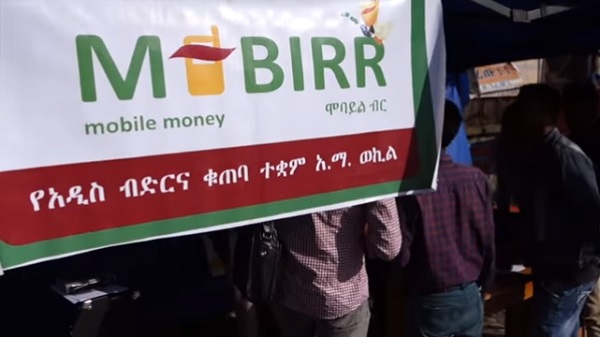
Amid the rapid growth of mobile money services, Ethiopia’s M-Birr wants to achieve the same sort of ubiquity as Kenya’s M-Pesa, bringing financial services to people who have never held a bank account in the process.
By Benjamin Fox (EURACTIV.com)
To say that the Ethiopian economy is cash-dominated would be an understatement. Many hotels and restaurants, particularly those outside the capital Addis Ababa, won’t accept credit card payments. That might be liberating for those tied to their plastic, but it becomes a problem when ATMs outside urban centers often lie empty.
Encouraged by the rapid growth of mobile money services like M-Pesa in Kenya, which processes over €29 billion worth of payments each year, M-Birr (Birr is Ethiopia’s currency) wants to achieve the same sort of ubiquity, bringing financial services to people who have never held a bank account in the process.
Increasing financial inclusion was one of the targets of M-Birr’s founders.
“There’s a huge unbanked population,” says Ethan Laub, head of marketing at MOSS ICT, the technology firm which supports the M-Birr service.
———————————————-
———————————————-
The government claims that 31% of the population have a bank account but industry experts reckon that figure is the result of multiple counting because one person may have two or third accounts.
“When it comes to borrowing money, many people don’t go to banks. They will often go to MFIs and local savings clubs. There is a perception, particularly in rural areas, that banks are for the rich. This makes it very hard for poor Ethiopians to participate in financial services,” says Laub.
Since its launch in 2015, M-Birr has built a network of more than 1.2 million users nationwide who deposit money at over 7,000 M-Birr locations. The service allows people to use their mobile phone to pay for groceries, fuel and various other daily services. Ethiopian Airlines and cable TV provider DSTV are among their partners.
The latest partnership is with Angaza, a pay as you go solar provider, that will allow people in rural communities away from the electricity grid to buy discounted solar kits and then have a payment plan.
A total of 14 billion birr – equivalent to over $500 million – has been transacted since the service started in late-2013, but the numbers are going up steadily. Around 6 billion birr ($200 million) has been transacted so far this year, says Laub. User numbers grew by 500,000 customers last year.
Competition in a tough market
But Ethiopia is a far tougher market to crack than Kenya. One difference with M-Pesa is that Safaricom, the Kenyan network provider, has a banking license which allows them to provide the mobile money services directly to customers.
Read the complete story at EURACTIV.com
